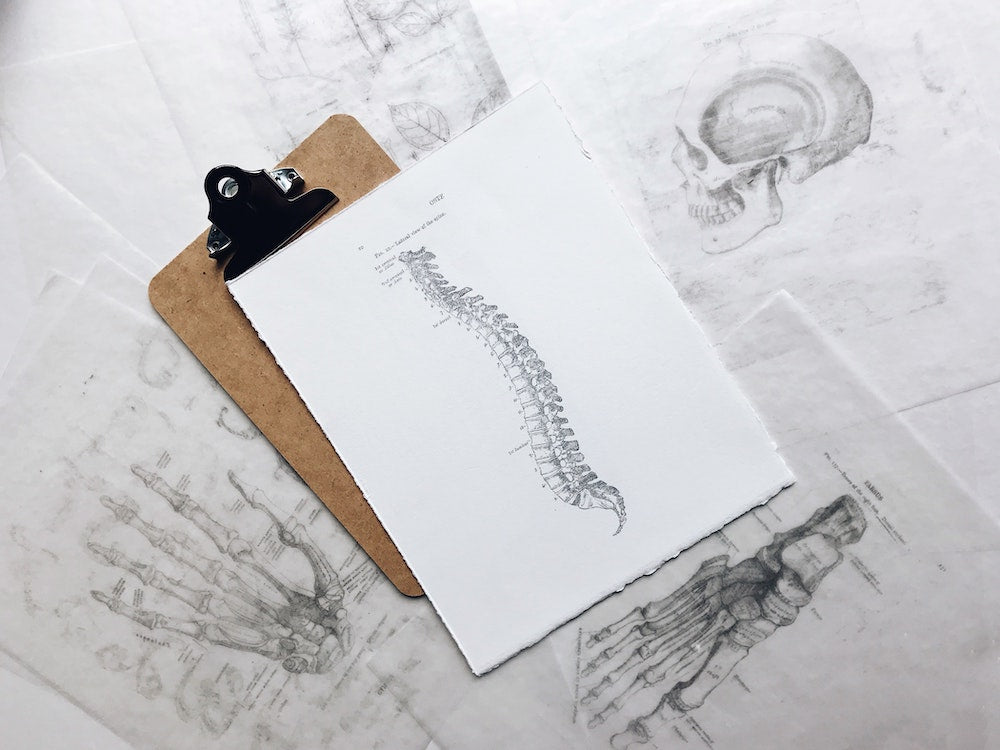The Importance of Magnesium for Bone Health

Introduction to the importance of bone health and common conditions like osteoporosis
It is essential to have strong bones for our overall health. They support and protect our organs, help us move, and store calcium and other minerals that our bodies need.
Unfortunately, our bones can become thinner and weaker as we age, making them more susceptible to breaks and fractures. This is particularly true for females who are more likely to develop osteoporosis, a condition in which the bones become so brittle and thin that even a minor fall can break them.
Magnesium is an essential mineral for bone health. It helps the body absorb calcium and promotes the formation of new bone.
Magnesium also helps to regulate hormone levels, which can impact bone density. A magnesium deficiency can lead to weakened bones and an increased risk of fractures.
There are many different ways to get more magnesium into your diet. Magnesium-rich foods, including dark leafy greens, nuts, seeds, and whole grains, are also available as supplements.
You can also get magnesium through your skin using Epsom salt baths or lotions. If you are deficient in magnesium, it's essential to talk to your doctor so they can run some tests and determine the best course of treatment for you.
Magnesium is an essential mineral for the body and is used in numerous bodily functions. One of the most important roles of magnesium is in bone health. This mineral is necessary for the proper development and maintenance of bones.
Magnesium helps keep bones strong and healthy by helping the body absorb calcium, another essential mineral for bone health. Additionally, magnesium helps to reduce the risk of osteoporosis, a condition that can lead to weak and brittle bones.
There are many different ways to get magnesium into your system. Eating a balanced diet with foods high in magnesium is the best approach to ensure you get enough of the mineral.
Some good sources of magnesium include dark leafy greens, nuts, seeds, and whole grains. You can also take supplements to ensure you get enough magnesium if you need more from your diet.
Consult your doctor about whether taking magnesium supplements might be appropriate for you if you are worried about the health of your bones or are at risk for osteoporosis. Getting enough of this vital mineral is essential for maintaining strong and healthy bones throughout your life!
Research on the relationship between magnesium and bone health, including the effects of magnesium deficiency on bone density
Magnesium is an essential mineral for bone health. It contributes to the development of bones and maintains their strength. Magnesium deficiency has been linked to low bone density and an increased risk of fractures.
Research has shown that magnesium plays a vital role in bone metabolism. It helps to regulate calcium levels and maintain bone structure. A lack of magnesium can lead to osteoporosis, a condition where bones weaken.
Magnesium deficiency is common, especially in older adults. More than half of Americans aged 51 and older suffer from magnesium shortages, according to the National Institutes of Health (NIH). Poor diet, several medical disorders, and drugs are just a few of the things that can cause magnesium deficiencies.
Speak to your doctor if you are worried about your magnesium levels. They can order a blood test to check your status.
Tips for incorporating magnesium into a bone health-promoting routine, including dietary changes and supplements
Magnesium is an essential mineral for bone health. It helps build and maintain bones and plays a role in calcium absorption and nerve function. Osteoporosis, a disorder that weakens bones and makes them more prone to fractures, can be brought on by a shortage of magnesium.
There are many ways to incorporate magnesium into a bone health-promoting routine. Dietary changes such as increasing the intake of magnesium-rich foods or taking magnesium supplements can help to ensure adequate levels of this vital nutrient.
Dark leafy greens, nuts, seeds, beans, healthy grains, salmon, and dairy products are high in magnesium. Increasing these foods' intake can help improve magnesium status and promote bone health. Magnesium supplements are available in various forms, including capsules, tablets, powders, and liquids. These can be taken with or without food, depending on the product instructions.
Talking to a doctor or registered dietitian before taking any supplements, including magnesium, is essential. This is because some people may need to avoid or limit certain accessories based on their health status or medication use.
Taking too much magnesium can cause gastrointestinal side effects such as diarrhea. Therefore, it's important to follow product directions carefully and start with the lowest recommended dose to see how your body responds.
Conclusion and summary of the potential benefits of magnesium for maintaining strong, healthy bones
Magnesium is an essential mineral for keeping bones strong and healthy. It helps regulate calcium levels in the body, which is necessary for the proper formation of bone. Magnesium also helps to keep bones dense and less likely to break.
There are many potential benefits of magnesium for bone health. Magnesium supplements may help to prevent osteoporosis or at least slow its progression. Magnesium may also help to reduce the risk of fractures, and it may help to improve bone density.
